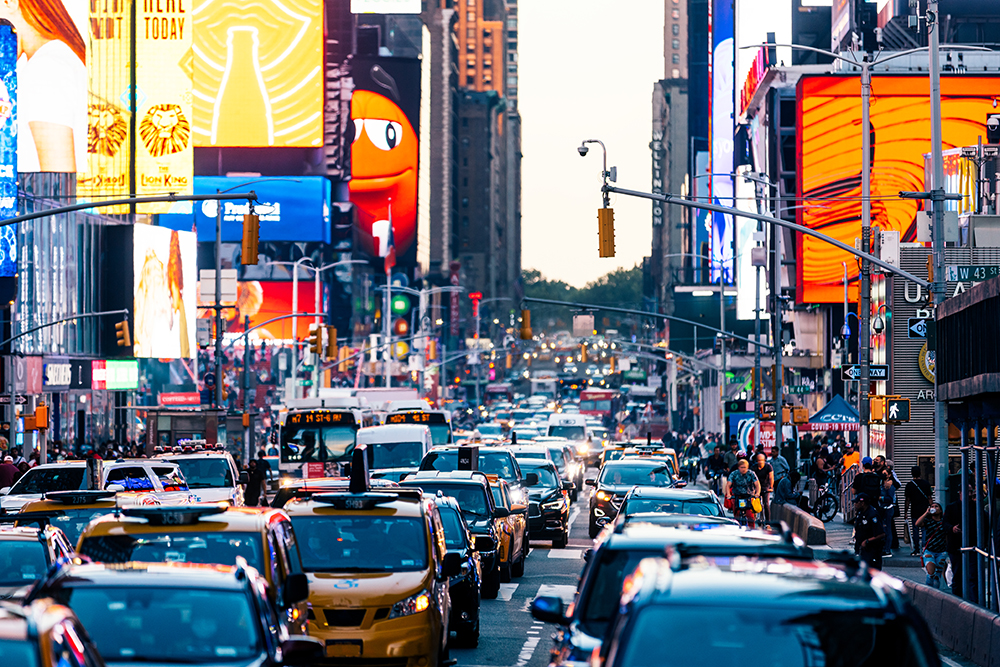
by Tablet Staff
PROSPECT HEIGHTS — The implementation of the controversial congestion pricing program in New York City has been indefinitely postponed and will not launch on June 30 as originally planned.
Gov. Kathy Hochul announced the timing to implement the proposal was not right because Manhattan businesses have not fully recovered from the pandemic.
“Circumstances have changed and we must respond to the facts on the ground, not to the rhetoric from five years ago,” Hochul said. “So after careful consideration, I have come to the difficult decision that implementing the planned congestion pricing system risks too many unintended consequences for New Yorkers at this time. For that reason, I have directed the MTA to indefinitely pause the program.
“The goals of congestion pricing in terms of reducing traffic and pollution are important, but hardworking New Yorkers are getting hammered on costs, and they, and the economic vitality of the city must be protected,” the governor said. She noted that “Manhattan currently has a commercial vacancy rate of over 20%. This reduction in foot traffic has had an enormous ripple effect, with fewer people patronizing restaurants, delis and dry cleaners. Let’s be real, a $15 charge may not seem like a lot for someone who has the means, but it can break the budget of a hard-working middle class household.”
Congestion pricing, which would charge a base toll of $15 a day to any cars entering Midtown and lower Manhattan, is set to go into effect on June 30. The amount of the additional tax was set, between $9 and $23 between 6 a.m. to 8 p.m. weekdays, depending on the vehicle, with delivery trucks being charged on the higher end.
The MTA, citing sagging revenue due to shrinking ridership, expected to raise $1 billion in revenue annually from the added toll. The plan was to then sell bonds against that money in order to generate $15 billion to fund such large-scale capital projects as infrastructure improvements, maintenance, upgrades to buses and subways, including the extension of the Second Avenue Subway to East Harlem.
MTA officials declined to comment immediately on Gov. Hochul’s announcement of the postponement.
New Jersey Gov. Phil Murphy applauded the decision to indefinitely postpone congestion, saying that “although we have had a difference of opinion with our colleagues in New York on congestion pricing implementation, we have always had a shared vision for growing our regional economy, investing in infrastructure, protecting our environment, and creating good-paying jobs on both sides of the Hudson River.”
“I think it’s a great step in the right direction,” said Mayor Mark Sokolich, (D) Fort Lee. “We’re not in Fort Lee trying to get the MTA to not operate properly, we’re just trying to make sure there’s fairness in the process.” Sokolich said Fort Lee would have had to cope with a 25% traffic increase throughout their area which would have negatively impacted the air quality.
But transportation expert Sam Schwartz disagreed with Hochul’s decision, saying: “I’m disappointed by her saying the timing isn’t now, the timing is now. The reality is that the transit system will suffer.”
And Mayor Eric Adams said. “We have to make sure that [congestion pricing] it’s not an undue burden on everyday New Yorkers. We have to make sure that it’s not going to impact our recovery. This is a major shift for our city and it has to be done correctly.”
But until now, Gov. Hochul has been a strong supporter of congestion pricing, publicly vowing as recently as December that she would be “undaunted by the opposition.”
